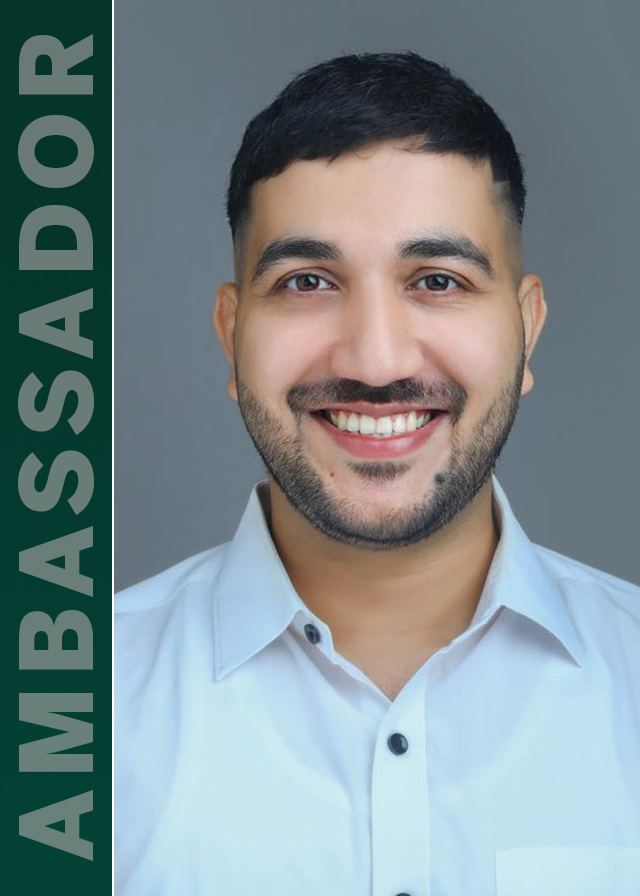Where did you live before you joined Ivey?
London, Canada
Masters Degree
Chartered Accountant
Pre-MBA employment industry:
Consulting
Why did you decide to do an MBA?
After seven years climbing the ranks in Auditing and Consulting, I hit a ceiling I couldn't quite name. I was good at what I did, but something was missing.
I remember sitting in my office late one evening, staring at yet another audit report and thinking, "Is this it?" Not because the work wasn't valuable, but because I wanted broader business challenges that my specialized path hadn't prepared me for.
That's why I chose an MBA, for the transformation. I wanted to test my thinking against people who'd never seen a balance sheet the way I had, and who'd challenge assumptions I didn't even know I was making.
Ivey felt right the moment I walked through the doors. The case method meant I wouldn't just be studying leadership, I'd be practicing it daily. Some friends thought I was crazy to step away from a successful career. Maybe they were right. But a few months in, sitting in study groups until midnight with former tech executives and engineers, I've had more lightbulb moments than in years of professional practice.
I didn't just want a different job title. I found something better: a completely new perspective on what's possible for my future.
What is the most significant thing you've learned at Ivey?
The most significant thing I've learned at Ivey isn't found in any textbook or case study. It's true that growth happens when you're willing to be wrong.
Coming from Audit and consulting, I was trained to find the "right answer." The correct figure. The definitive conclusion. Success meant certainty. At Ivey, I've discovered the opposite can be true.
I'll never forget our Leadership case in LPO (leading people in organisations). We were given a case about a newly appointed manager who had to make two critical personnel decisions within 30 days: whom to promote to team lead and whom to let go. The profiles were deliberately complex: a steady but change-resistant veteran, and a results-oriented rising star with questionable ethical boundaries.
I came prepared with my decision matrix, confident in my analysis. I would promote the steady performer for stability and fire the ethical corner cutter, the numbers and risks aligned perfectly. When called on, I presented my reasoning with the same certainty I once used in client meetings.
Then something humbling happened. A classmate who'd spent years in HR pointed out the cultural implications I'd completely missed. Another with military leadership experience challenged my assumption about what constitutes ethical decision-making under pressure. A former strategy consultant questioned whether stability was actually what a struggling team needed most.
That's when it clicked: this program isn't teaching me to be right all the time. It's teaching me to test ideas rigorously, adapt quickly when new information emerges, and value the collective intelligence of a diverse team over my individual certainty.
The most successful people in our cohort aren't those who speak with unwavering confidence. They're the ones who ask the questions nobody else thought to ask, who listen intently, and who can say "I hadn't considered that" without feeling diminished.
This shift from valuing certainty to valuing curiosity has transformed how I approach business problems and how I collaborate with others.
